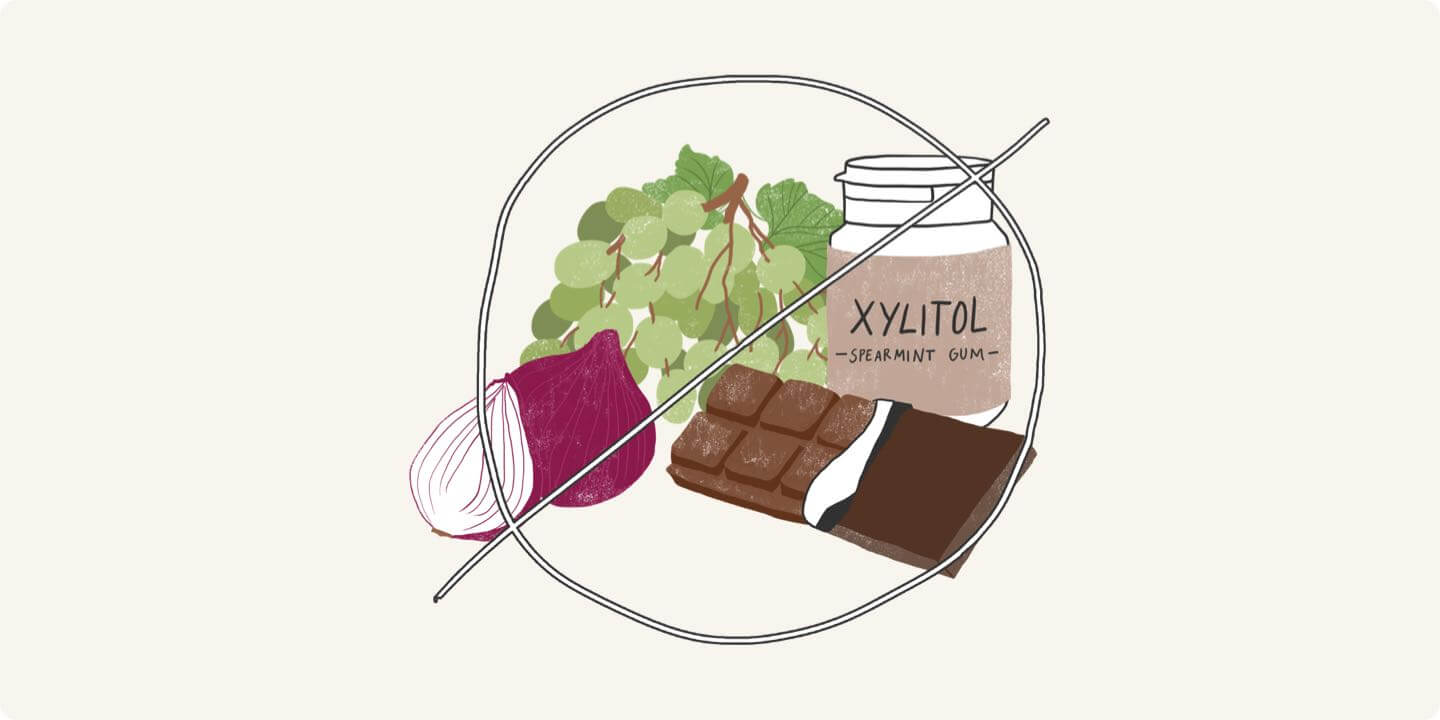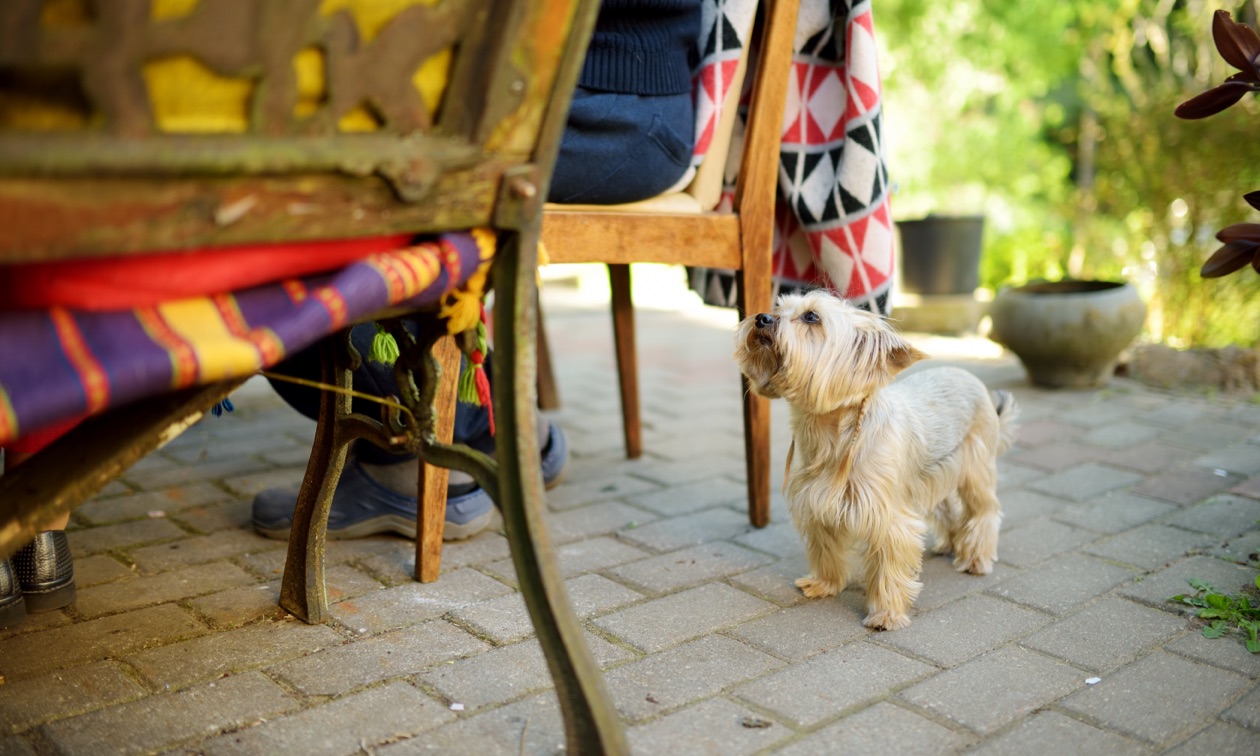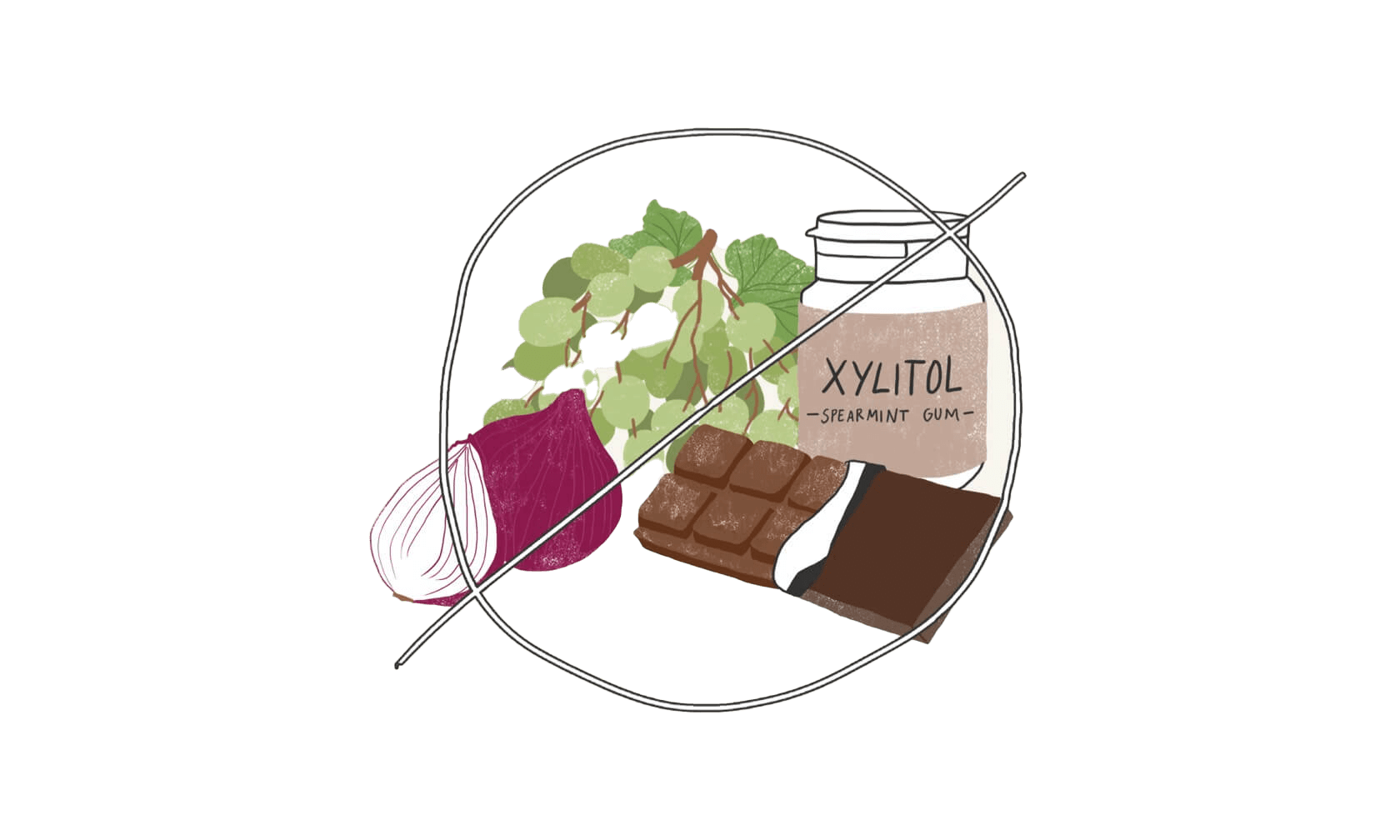We fully embrace your adventurous palate, but letting your dog join you in your curious foodie pursuits can have dangerous results. The next time your dog is hypnotizing you with their big eyes to hand over whatever’s on your plate, remember this list of dangerous foods for dogs.

This list of foods that are toxic to dogs can be dangerous for various different reasons. Some present a choking hazard, some can cause an upset stomach, while others can cause serious illness or even death. Accidents can happen though, so if your dog does happen to ingest any of these foods or drinks, keep an eye on them and see if their behavior deviates from normal.
Alcohol
All adult beverages (beer, wine, and liquor) are dangerous for your dog, so stick to water. If your dog does ingest alcohol, symptoms could include vomiting, poor appetite, drinking more frequently, peeing more frequently, walking like they’re drunk, weakness, and collapsing.
Caffeine
Keep your dog away from caffeinated beverages — that afternoon espresso or energy drink can lead to serious health problems and can even be fatal. Signs of caffeine ingestion include vomiting, abnormal heartbeat, heavy panting, anxiety, seizures, and collapsing.
Chocolate
Perhaps your dog overheard the health buzz about dark chocolate at your last dinner party, but don’t let them give in to this human trend. For dogs, the darker the chocolate, the more dangerous it can be for them. There are plenty of chocolate alternatives for dogs to check out.
Corn Cobs
Although they look like good chew toys, corn cobs can lead to extreme illness or even require surgery if swallowed. If they got into a corn cob, you may notice vomiting, diarrhea, poor appetite, straining to poop, stomach pain, tiredness, fast heart rate, or collapsing.
Fruit Pits
Keep your dog away from pitted fruits like avocados, peaches, plums, and cherries. If they swallow a pit, they may wind up needing surgery to fetch it back out. If they eat a fruit pit, the following could happen: vomiting, poor appetite, stomach pain, decreased energy, fast heart rate, diarrhea, or straining to poop.
Grapes, Raisins & Currants
Be sure to keep all these little fruits out of your dog. For some dogs, eating them can damage their kidneys. Grapes, raisins, and currants are part of the grapevine family, all of which are foods that are toxic to dogs.
Macadamia Nuts
Did you know that macadamia nuts can cause a dog to temporarily lose control of their back legs? Keep your dog away from nuts in general, as they can get stuck in their windpipe or belly.
Meat Fat
Make sure your dog steers clear of your BLT and your BBQ, because fatty meat scraps like bacon and steak trimmings could give them a rumbly tummy or even a bad case of pancreatitis.
Onions, Garlic & Chives
Eating onions, garlic, or chives can break down your dog’s red blood cells, leading to anemia and possibly even the need for blood transfusions.
Raw Yeast Dough
The yeast in unbaked dough can expand in dogs’ stomachs, causing obstruction and even alcohol poisoning. If you know that your dog has eaten some, give them a bowl of ice water to slow the yeast activation and call a veterinarian ASAP.
Xylitol
This natural sugar substitute is found in items like sugar-free gum, low-calorie snack foods (including some brands of peanut butter), and as an additive to lots of things you wouldn’t expect including mouth wash and chewable vitamins. Keep Xylitol off your dog’s menu because it’s extremely dangerous to them even in small amounts.
If your dog has eaten anything on this list, don’t take a “wait-and-see” approach. Swift action makes for an easier vet visit for your best friend and your wallet. And if your vet’s office isn’t open, contact your local Animal ER or one of the pet poison control hotlines: ASPCA Animal Poison Control: 888-426-4435 Pet Poison Helpline: 855-764-7661.
ZPC-00505R2



